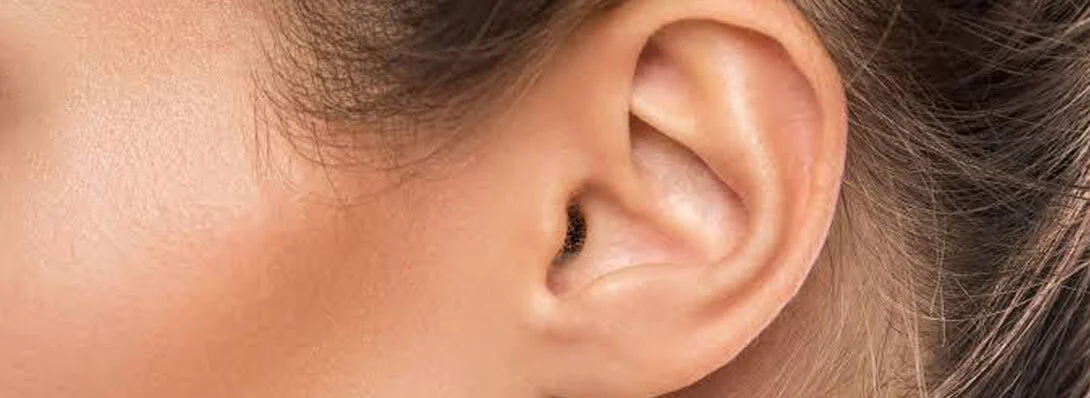Schwannomas are benign tumours that develop in the Schwann cells, which are the protective covering for the nerves. Though a rare occurrence, Schwannomas may develop anywhere in the body, wherever there are Schwann cells.
In this article, we will explicitly discuss Facial Nerve Schwannomas (FNSs) and the existing and latest treatment measures, such as the endoscopic transcanal excision, which is an unique and first-in-the-world treatment method.
Compared to vestibulocochlear nerve (acoustic) schwannomas, facial nerve schwannomas are rare, accounting for 1% of temporal bone tumours. These slow-growing tumours tend to be unilateral, solitary, and sporadic in nature.
This variant of tumours is often accompanied by otologic and neurologic symptoms. Facial weakness is the important symptom of facial nerve schwannomas followed by hearing loss. Some of the other potential symptoms include occasional dryness in the eyes and bouts of imbalance during body movements.

FNSs present a massive risk to maintain facial function, hearing, and balance. And thus, the diagnosis and further treatment roadmap have to be chalked out with optimal care and scientific precision. Audiological tests, auditory brainstem evoked response audiometry, CT and MRI scans are often leveraged to diagnose FNSs. Surgical removal and radiotherapy are the treatment modalities.
Next, in this article, we will understand how safe is the surgical procedure for FNSs and whether there are any alternative solutions for managing FNSs.
How Safe is the Surgery for Facial Nerve Schwannomas?
Any surgical procedure carries some amount of risk and concerns. When it comes to surgical procedure for removing facial nerve schwannomas, open surgeries come with a lot of risks.
Temporary or permanent loss of hearing, compromised vestibular function, and brain retraction are some of the risks associated with open surgeries performed for managing schwannomas of the facial nerve.
Open surgeries often leave visible scars that don’t go away easily. Hospital stays are often 2 weeks or more, depending on the current state of health of the patient and the recovery timeline. Post-operative infection also may happen after open surgeries for FNSs.
Endoscopic Transcanal Excision - Is It The Ultimate Solution?
While the entire global medical community was eyeing an ultimate alternate treatment for managing FNSs without impairing the patients’ auditory, brain, and vestibular functions, Apollo Cancer Centre specialists have performed the endoscopic transcanal excision of the facial nerve schwannomas with cable grafting using the greater auricular nerve.
This is the first time in the world’s medical history wherein this unique endoscopic excision of the facial nerve schwannoma was attempted by Dr Satish Nair at Apollo Cancer Centre, B India, who’s the head and neck cancer specialist at Apollo Cancer Centre, Bangalore, India. While the debate of open vs endoscopic excision is yet to be concluded, the latter presents a whole lot of benefits compared to the former.

Compared to open surgeries, endoscopic excision is minimally invasive in nature that leaves no unsightly scars. From the cosmetic standpoint, the endoscopic method is preferred as hair shave for surgery is not necessary. This method renders better anatomical and functional outcomes while avoiding morbidity and mortality risks for the patients. Endoscope provides better visualization compared to conventional open microscopic technique which in turn helps in identifying and preserving all the critical structures. This method also ensures that the structure of the eardrum is preserved to ensure that the hearing and balancing capacities of the patients are not impaired.

While open surgeries often led to 30 to 40% of hearing loss in patients, endoscopic transcanal excision of FNSs restored complete hearing function.
This endoscopic transcanal excision was performed on a patient from Tanzania who had been struggling with FNs symptoms for the last 2 years. It’s needless to say that the endoscopic process was a huge success, and the patient experienced a shorter hospital stay of 2 days. The patient was able to fly back home without any complications and resume her normal activities within a matter of days.
Apollo Cancer Centres - The Ultimate Destination for Unique Treatment for Facial Nerve Schwannoma
Apollo Cancer Centre has been making substantial strides in bringing in cutting-edge, robust, accessible, and affordable cancer care solutions for all in need. Its panel of esteemed cancer specialists, multidisciplinary teams of experts, state-of-the-art infrastructure, and cutting-edge medical and diagnostic know-how have made Apollo Cancer Centre unarguable, the ultimate cancer care destination in India that is all set to benefit patients globally in an efficient, smart, and scalable manner.
Facial nerve schwannoma symptoms are easy to be confused with other tumour variants. We recommend you give yourself and your loved ones the benefit of the right, and on-time diagnosis, which can boost your chances of cancer survival.
For more information on facial nerve schwannomas and the endoscopic treatment procedures, Connect with our experts today. Write to us at apollocancercentres@apollohospitals.com. For treatments/consultations, call us at 1800-203-1066/+9140 48964515 or book an appointment.





.png)



